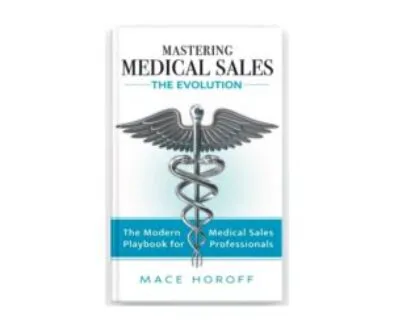How not to succeed in medical sales: Spend Your Time Performing Low-Wage Tasks
Most medical sales professionals can answer the following question with little problem: What do you get paid to do?
The answer of course is: To sell!
Why is it then that I often find medical sales representatives performing low-wage activities instead of what they were hired to do? What concerns me more is that they always have a way of rationalizing it. What a great way to make yourself obsolete!
Let’s consider a common example of a low-wage task: Sales professionals who insist on making their own deliveries. When a sales rep who is earning a six figure income takes precious sales time to deliver equipment, instruments, or disposables to a customer, he thinks he’s working. He’ll rationalize it by saying, “I need to talk to the person who will be using the product. It’s a potential sales opportunity if I can see the doctor or speak with the office manager. I want them to see my face so they know I’m delivering personal service.” Really? Does this make sense? You might be working, but you’re not doing what you get paid to do…and it’s even uglier if you look at the math…
Take a sales professional who is earning $100K annually. Assuming 50 weeks per year and 40 hours per week (I know, your hours are much longer…just work with me here), that makes the paid value of this salesperson’s time $50 per hour. Realistically, the potential value of each hour is worth a multiple of that amount since using that time to sell may result in more business.
What alternatives are available to get the product to the customer? How about a delivery person? What wage does a delivery person earn? Realistically, around $15 per hour (or less) plus we can assume a gas allowance of up to three gallons per hour. Figuring $4 per gallon X 3 gallons = an additional investment of $12 per hour, for a total investment of $27 per hour to have someone make the delivery. But since you would have spent the $12 on gas yourself, the amount is moot. The net cost of the delivery person is $15 per hour.
So we have a six-figure sales professional whose current value is $50 per hour doing the job of someone whose value is $15 per hour. What is the potential upside of driving for an hour to make the delivery? From a sales perspective, it’s zero, unless you have a planned, scheduled sales call at the time and location of the delivery.
If the sales rep pays someone to make the delivery, and in that hour he closes a sale, what would that hour be worth? Without question, it has the potential to yield far more than the $15 it cost. In this industry, the right sales call at the right time could be worth five or six figures in income!
When you call your doctor’s office, does the doctor answer the phone? Does the doctor weigh you and measure you? Does the doctor hand you a cup to pee in and collect the specimen once you’re done? Of course not! These are all lower-wage activities compared to what a doctor is paid to do.
Don’t forget that as a medical sales professional, you get paid to sell. I acknowledge that you have other responsibilities that come with the job, but many of them can and should be done by someone else. Customers need delivery of your product and they may need some level of customer service, but when you spend your time doing low-wage tasks, you’re setting yourself up for something that may await you in the changing healthcare economic environment—A low-wage job!
In sales, if you’re not selling and growing, you’re dying. Spend as much time as possible doing what you get paid to do.


